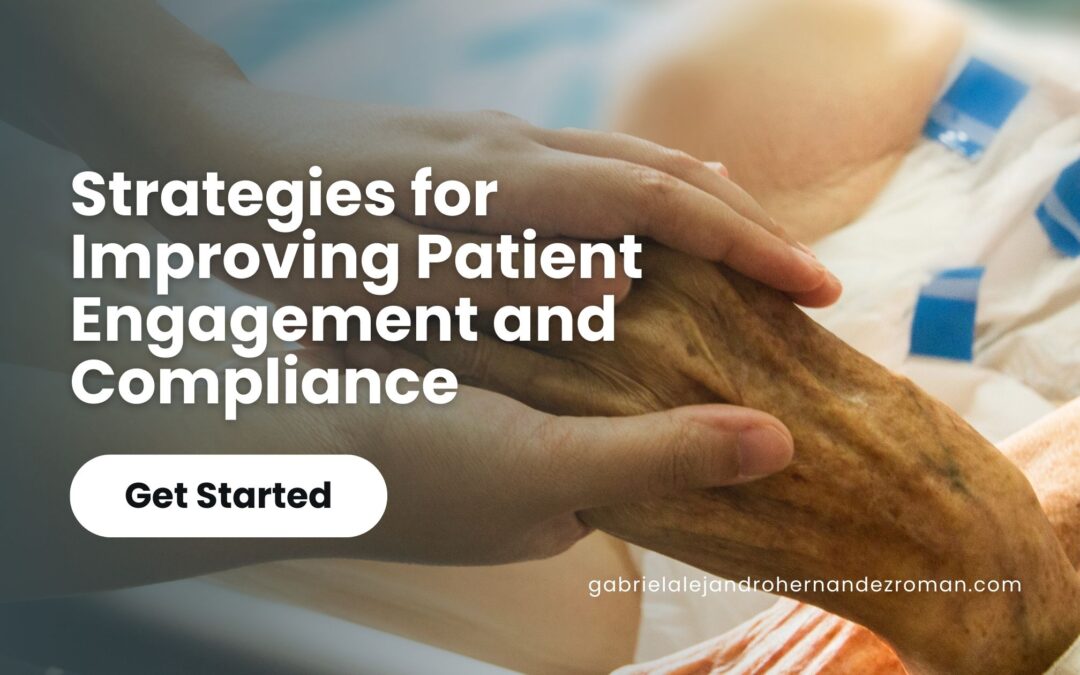Improving patient engagement and compliance is essential for enhancing healthcare outcomes and ensuring that patients adhere to their treatment plans. Engaged patients are more likely to follow medical advice, participate in their care, and achieve better health results. Implementing effective strategies can help healthcare providers foster patient engagement and increase compliance.
One key strategy for improving patient engagement is enhancing communication. Clear, open, and empathetic communication between healthcare providers and patients is crucial. Providers should take the time to explain diagnoses, treatment options, and care plans in a way that is easily understandable. Using plain language, avoiding medical jargon, and encouraging patients to ask questions can help ensure that they fully comprehend their health conditions and the importance of following treatment recommendations.
Another effective strategy is to involve patients in decision-making. Shared decision-making empowers patients by giving them a role in their own care. Providers should discuss treatment options, including the potential benefits and risks, and consider patients’ preferences and values when developing a care plan. Involving patients in the decision-making process increases their sense of ownership and responsibility for their health, leading to higher engagement and compliance.
Technology can also significantly enhance patient engagement and compliance. Patient portals, mobile apps, and telehealth services provide convenient access to health information, appointment scheduling, and communication with healthcare providers. These digital tools enable patients to track their health progress, receive reminders for medications or follow-up appointments, and access educational resources. By leveraging technology, healthcare providers can offer more personalized and accessible care, improving patient engagement and adherence.
Education and self-management support are essential components of patient engagement. Providing patients with educational materials about their conditions, treatment options, and self-care techniques helps them better understand their health and make informed decisions. Workshops, support groups, and online resources can also provide additional support and encouragement. Empowering patients with knowledge and skills for self-management can lead to better adherence to treatment plans and improved health outcomes.
Building a strong therapeutic relationship between patients and healthcare providers is another important strategy. A positive and trusting relationship fosters better communication, encourages patient participation, and enhances overall engagement. Providers should show empathy, actively listen to patients’ concerns, and demonstrate a genuine commitment to their well-being. A supportive and compassionate approach can strengthen the patient-provider relationship, leading to increased compliance and better health outcomes.
Addressing barriers to compliance is also crucial for improving patient engagement. Identifying and addressing obstacles such as financial constraints, transportation issues, or medication side effects can help overcome challenges that may affect adherence. Providers should work with patients to find practical solutions and offer resources or referrals to address these barriers. By proactively addressing potential issues, healthcare providers can help patients stay on track with their treatment plans.
Finally, regular follow-up and feedback are important for maintaining patient engagement. Providers should schedule follow-up appointments to monitor progress, address any concerns, and make necessary adjustments to the care plan. Providing positive reinforcement and acknowledging patients’ efforts can also motivate them to continue following their treatment plan. Regular check-ins and feedback help ensure that patients remain engaged and compliant throughout their care journey.
In conclusion, improving patient engagement and compliance requires effective communication, involvement in decision-making, the use of technology, education, a strong therapeutic relationship, addressing barriers, and regular follow-up. By implementing these strategies, healthcare providers can enhance patient engagement, promote adherence to treatment plans, and achieve better health outcomes. Engaged and informed patients are more likely to take an active role in their care, leading to improved overall health and well-being.

